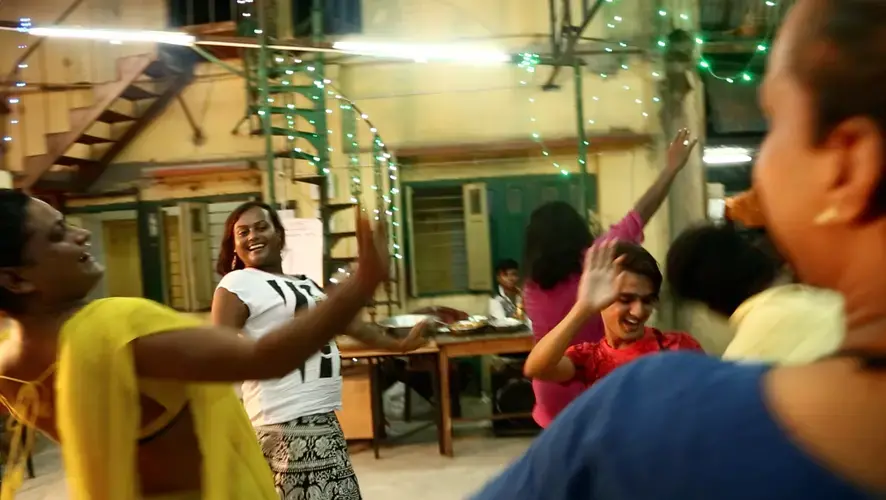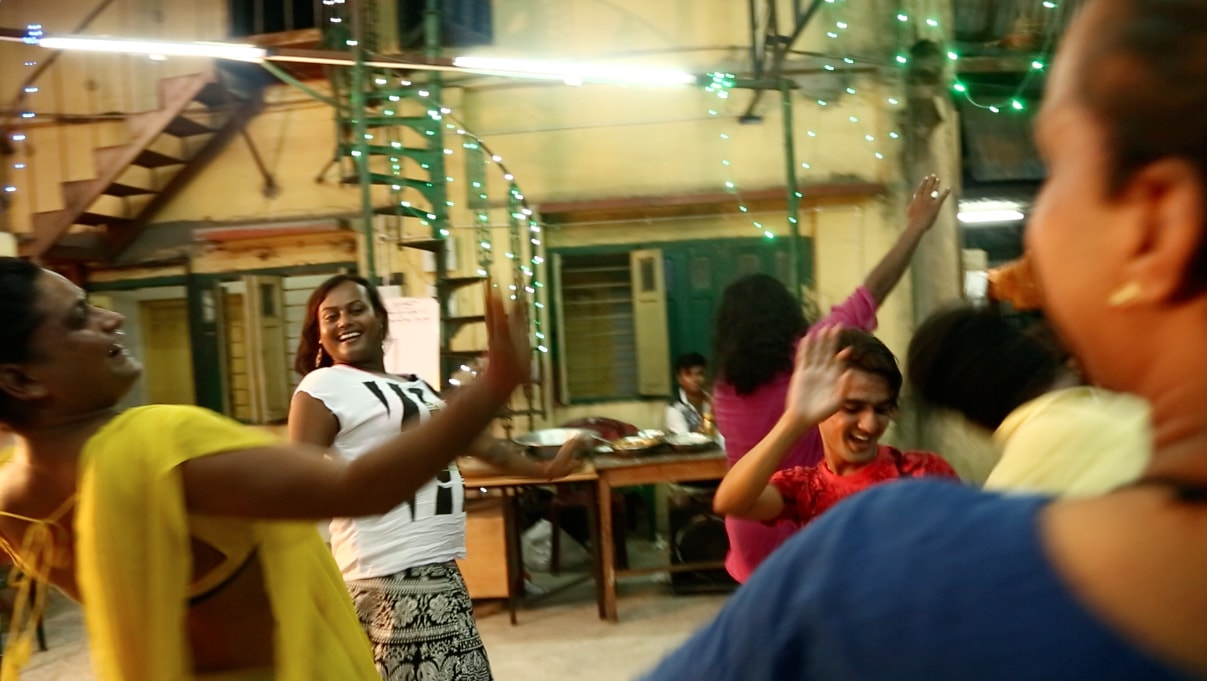
Without hesitation Sintu headed towards the side of the train faintly labeled “Gentlemen.” I found a seat on the opposite end of the cart in the “Ladies” section. In her bright pink kurta, Sintu certainly stood out in the crowded train, but no one seemed to mind. Earlier, as we made our way through the bustling streets of Kolkata, Sintu was unbothered by the prolonged stares of many passersby, even approaching some for directions—again, without hesitating.
“Aren’t you bothered by the stares? I know my camera probably isn’t helping with that,” I asked (in Hindi).
“Not at all. The staring doesn’t bother me anymore. I stopped caring what people think a long time ago,” she said with a smile, as she lit a cigarette.
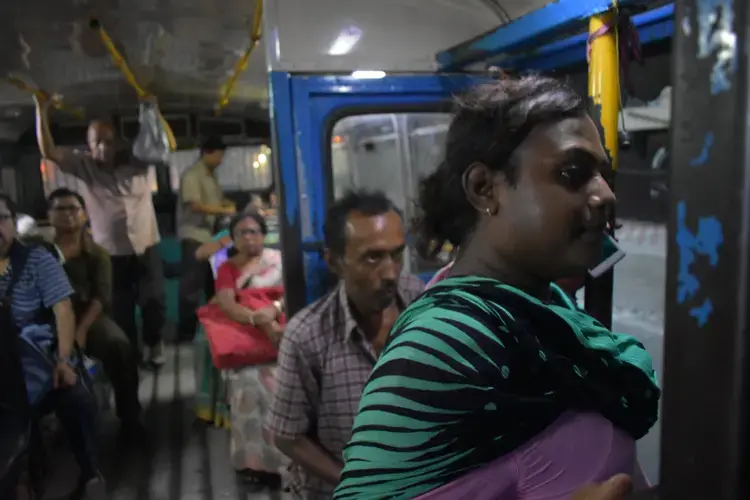
Just off the railroad tracks bordering Kolkata, along the Ganges River, is the quiet and verdant town of Seoraphuli, where Sintu lives. Much to my (perhaps misinformed) surprise, Sintu was enthusiastically greeted by several people in the town as we passed by colorful stands of vegetables, fish, and clay pots.
“It wasn’t always like this,” she remarked. Growing up, Sintu was often beaten for her “feminine” behaviors by her mother, a sex worker in Seoraphuli. “It was only after my mother died that the rest of my family and my neighbors began to accept me.”
As we continued past the market we entered the red light area of the town. In a maze of small, brightly colored, concrete homes and tropical vegetation, the area was distinguishable from other rural neighborhoods only by its small health clinic (run by Durbar Mahila Samanwaya Committee, a Kolkata-based labor union of sex workers) and numerous women standing outside, wearing makeup. Any image one might conjure of such places as dark, cold, and dangerous was shattered even further when we entered Sintu’s joint-family home in the center and were warmly welcomed by her family.
Sintu immediately joined her sister and aunt in cooking lunch, cleaning, and preparing their home. She recalled her early childhood as she poured me some chai.
“When I was young I loved dancing and would dress up in my mother’s saris in secret... If they caught me dressing up, dancing, wearing makeup, or doing anything that a woman does around the house, they would beat me and cut my hair… They tortured me because I was acting like a girl.”
Several years after her mother’s death, Sintu sat before me in the same house, doing household work alongside the women of her home.
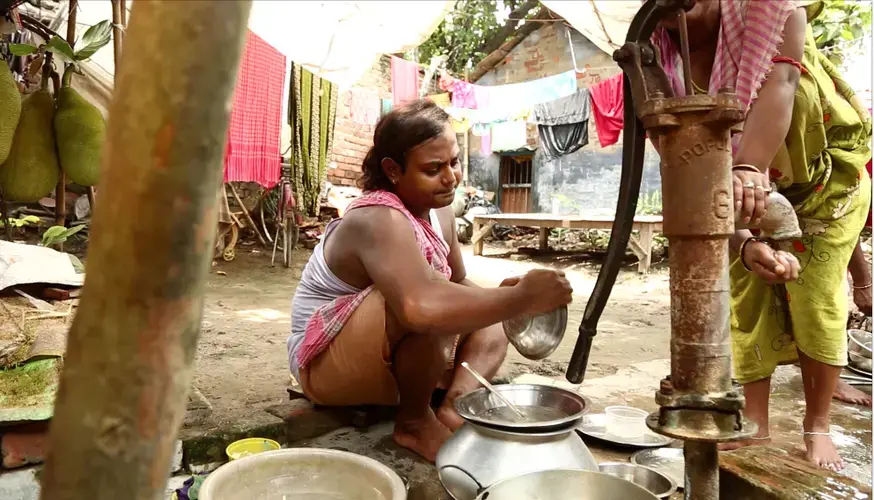
In August 2017, the Indian Supreme Court ruled that privacy is a fundamental right guaranteed to all citizens under the constitution. This was seen as a victory for the LGBTQ movement, which has long used the right to privacy as a legal basis to strike down Penal Code 377, an antisodomy law that essentially criminalizes homosexuality. While there are several ongoing battles to pass an anti-discrimination bill and protection for the legally recognized third gender, the implication of this ruling is that sexual orientation is a private matter that the state cannot govern. Many activists and scholars argue that while this is true, debates that center around a question of privacy are far removed from the reality of the trans and queer experience.
“Privacy is an upper-class issue… In India, not all individuals have the right to private spaces when their entire lives are conducted on the street,” says Dr. Debanuj Dasgupta, assistant professor of geography at the University of Connecticut. “When space itself is a scarce commodity in India, how can you frame the argument on the right to privacy? Whose right to privacy are we talking about here?”
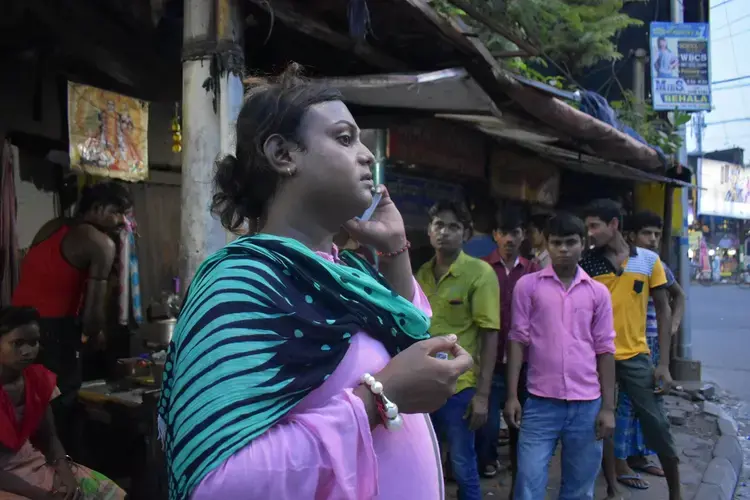
It perhaps goes without saying that there are significant discrepancies between legal battles for rights and the needs of communities mobilizing at a grassroots level. Dr. Soma Roy is the senior research and capacity building officer at the Sonagachi Research and Training Institute (the research wing of DMSC) and serves as an adviser for Anandam, an LGBTQ organization for which Sintu is the secretary. “The legal debates about LGBTQKH rights today often exclude the particular needs of the poor,” Dr. Roy says. “It’s not enough to legally recognize only their identity and existence. The real grassroots movement is about securing access to jobs, health, and most importantly, gaining dignity.”
Sintu, a trans
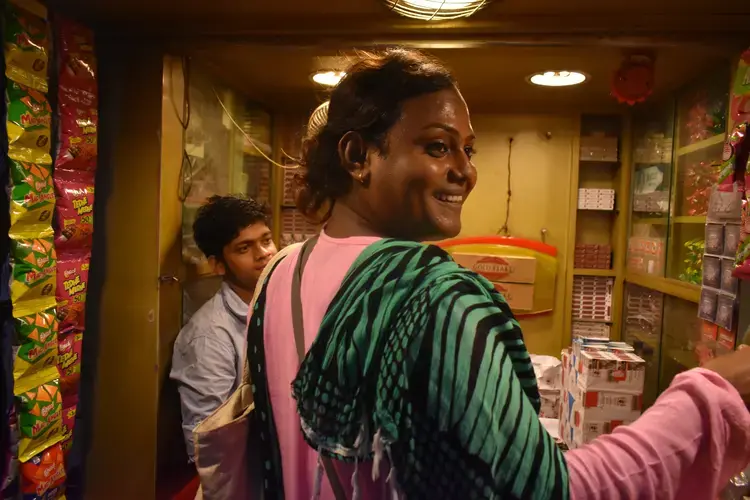
Several weeks after our visit to Seorophuli, I sat with Sintu at Café Mela, a pop-up queer cafe in Kolkata that she had planned with members of Anandam. “There are some other [queer] cafes in Kolkata, but we don’t feel like we belong there...We aren’t as educated, we don’t dress in the right way....”
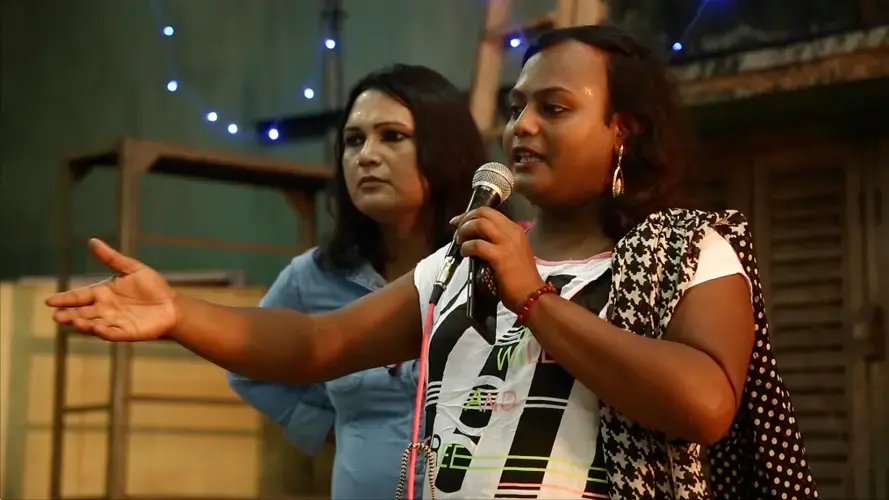
"At Café Mela we cook the food ourselves—we are so happy to do this—and we are able to sell the food that we worked to cook...” Sintu beamed as loud cheers erupted behind her, where community members were putting on dance performances.
“Within our community, many of us are good dancers and artists, but we don’t have the chance to exhibit or sell our work. This café is a platform where people can do things like mehendi, show paintings, and other creative work. This is a space made just for us. A platform where people can show their creative abilities, but also relax and have fun. It’s what we need.”
